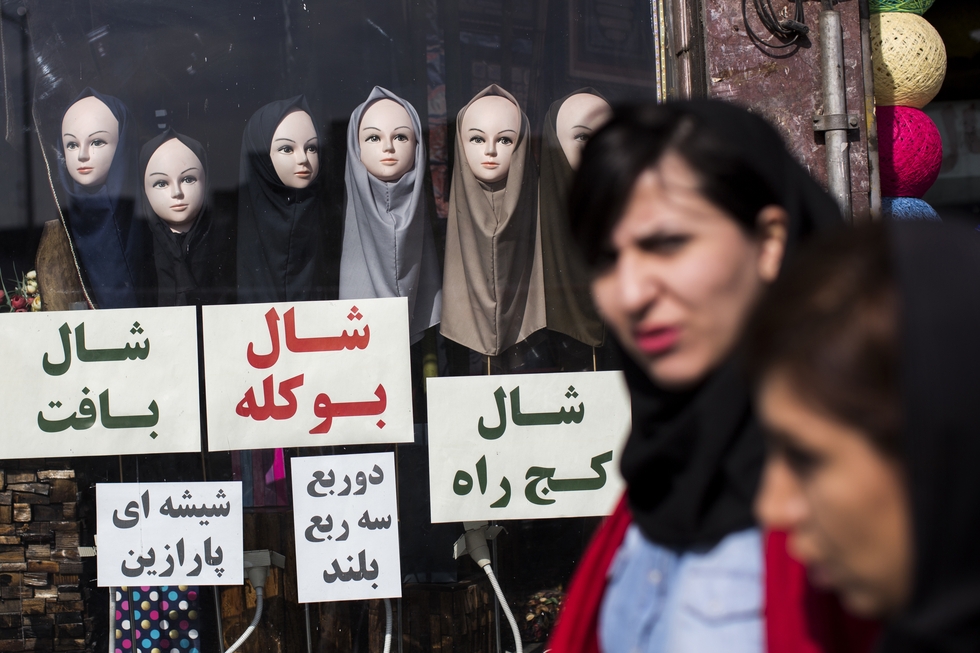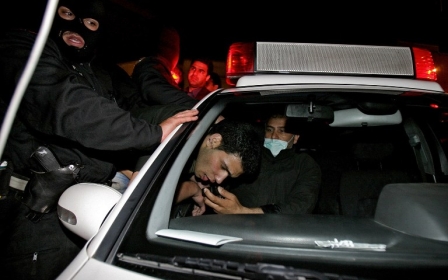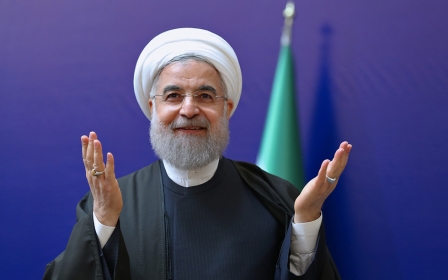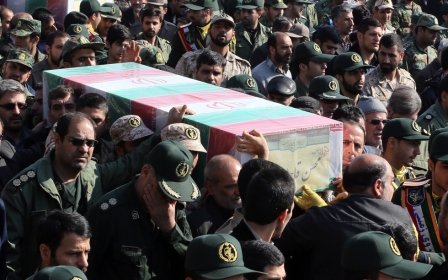Morality police go undercover to keep Tehran under cover

TEHRAN - At Revolution Square, a woman in black chador advises a young girl about her hijab. But a closer look reveals the woman wears a police uniform under her robes - she is an undercover agent from the Gasht-e Ershad, or "morality police".
On 18 April, Tehran announced that the city's “morality police” had begun their work. The city's police chief, General Hossein Sajedi Nia, stated that “noise pollution, unsafe driving, disturbing girls and incorrect hijab” would be punished.
It is a common announcement before the summer months, but this year the 7,000-strong force was for the first time being sent "undercover" with powers allowing them to enforce dress codes and even impound cars.
The new initiative was criticised by moderates and reformists as a politically motivated decision following overwhelming victories in February's elections for supporters of the moderate president, Hassan Rouhani.
Abbas Abdi, a political analyst, told a local news site: “When people see the morality police is activated right after the election, they assume this is politically motivated.”
Rouhani has previously promised to rein in the "morality police" but Tehran's police chief is chosen by Supreme Leader Ali Khamenei and does not answer directly to the president.
Officials in Tehran insist the morality police are wanted by the people, but many women on the streets of the capital do not appear to agree.
Those spoken to by Middle East Eye said the undercover agents would spread distrust, fear and ultimately rebellion among Tehranis.
Nazila Ahmadi, a secretary wearing a black chador, said: “Forcing people to do something won't produce good results and will probably backfire. People go after what is forbidden. So long as you command woman to hide, the desire to show herself increases.
"The more a woman hides, the more the people desire to see her.”
Fatima Masoumi, a saleswoman, said: “What people wear is not important, the police should use its forces to capture the thieves and drug addicts.”
Parmida Mesri, a student, said: “The undercover morality police will harm the beauty of the city. Young girls will be pushed to observe their hijab in the streets, and this is not appropriate."
She said it was the job of cultural institutions, rather than police, to resolve such issues.
Aghdas Sazgara, the daughter of a cleric, took it further: the morality police's actions were "completely against Islam and Quran”.
“The police believe they are 'commanding what is just and forbidding what is evil,' which are two important Islamic requisites," she said.
She added: “Islam advises all people to guide others not to commit sin in a respectful and kindly manner. According to Islam, those who do not act politely towards women - or men - are committing a sin themselves."
Others meanwhile are using a phone app, Gershad, to track the location of secret morality patrols and warn others of their presence.
Other, more conservative, Tehranis believe the police operation is necessary for Iranian society.
Azadeh Rostami, a student at Islamic Azad University, told MEE: “Our people’s problem is that they don’t know what to wear in the society. They confuse the street with a party in their friends’ homes.”
Ali Ghasemzade, a mechanic, said: “How women dress outside is often not appropriate. Young men are less willing to get close to sins when women are prevented from appearing in the streets with immodest dresses.”
At a mosque in Pasdaran Street, in northern Tehran, women were also divided over how to address the hijab issue, even though the majority of people who attend the mosques to say prayers are from religious and pious families.
Zeinab Sabzikar, a housewife, said: “Back in the 1990s, when I was a girl, I never dressed like the new generation of girls. It seems to me that they are trying to show off, so they can attract young men to themselves. This is not the correct behaviour a young girl should have.
“Improper clothes and wearing too much make-up will surely tempt the boys. This causes moral corruption, and lots of social problems that are costly for the country.”
Despite the police announcement about the reasons behind its initiative, it is believed that use of the undercover morality police is a political move against the president.
Mohsen Kakhki, a journalist, told MEE: “We are one year away from the presidential election. The hardliners are attempting to show Rouhani as a weak president.
"The undercover morality police may be one of their plots for distancing the voters from Rouhani, who surely will nominate himself in the next election.
“Rouhani’s public opposition to the undercover morality police has delivered a blow to the hardliners’ plan. However, this is not enough, and people expect him to solve this issue.”
Middle East Eye propose une couverture et une analyse indépendantes et incomparables du Moyen-Orient, de l’Afrique du Nord et d’autres régions du monde. Pour en savoir plus sur la reprise de ce contenu et les frais qui s’appliquent, veuillez remplir ce formulaire [en anglais]. Pour en savoir plus sur MEE, cliquez ici [en anglais].




